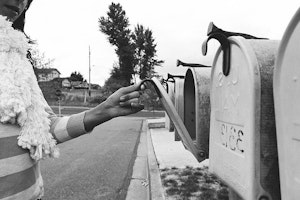
South Carolina’s CBD Policies And Accessibility
South Carolina's evolving CBD policies pave the way for improved accessibility, offering hope and relief to many seeking alternative remedies.
The legal status of CBD oil in South Carolina inhabits a convoluted gray area stemming from broader conflicts between state and federal cannabis laws. While CBD products remain widely available across the state, legitimate questions over their lawful status persist that consumers should understand.
Cannabidiol, or CBD, represents one of over 100 active compounds derived from cannabis called cannabinoids. Unlike the famous intoxicating cannabinoid tetrahydrocannabinol (THC), pure CBD is non-psychoactive, and preliminary research links its consumption to numerous therapeutic health benefits.
The 2018 US Farm Bill federally legalized cannabis plants and derivatives containing less than 0.3% THC, opening doors for massive growth in the CBD market across the country. However, various states maintain outdated laws criminalizing all compounds stemming from cannabis—including non-intoxicating CBD—setting up conflicts with federal directives.
While public support for medical marijuana approaches 80% in polls of South Carolina residents, the state legislature has held a historically strict prohibition stance against all cannabis products. Presently, the state definition for marijuana still includes CBD oil, maintaining Schedule I illegal controlled substance classification.
South Carolina CBD Purchasing Access
Despite the opposition between CBD’s federal and South Carolina state legal status, consumers face no shortage of finding cannabidiol products at local retailers or ordering online.
Online
Purchasing CBD oil derived from hemp grown outside South Carolina through online direct shipping involves negligible legal risks. Veterans and some with severe medical conditions may access limited CBD inventory through state programs as well.

Stores
Brick-and-mortar store shelves across South Carolina overflow with CBD tinctures, gummies, topicals and more touting health advantages. Options include vape shops, natural grocers, spas, CBD specialty outlets, and certain drugstore chains. Few shops face repercussions for violating technical state codes banning CBD possession and distribution.
South Carolina CBD Use Considerations
When navigating South Carolina’s gray CBD market, consumers should carefully assess risks and topics like:
- Verifying any CBD product undergoes independent lab purity testing before purchasing
- Confirming CBD sourcing from licensed industrial hemp providers following strict federal guidelines
- Reviewing available COAs and ingredient lists to validate less than 0.3% total THC levels
- Avoiding CBD creams or balms making unproven medical effect claims
- Starting doses slow under a doctor’s guidance if on other medications
With CBD accessibility outpacing sound state regulatory frameworks, informed personal responsibility and discretion remain key pillars for South Carolina cannabinoid consumers.
The Inevitable Future Rise In South Carolina’s CBD Market

Photo by Cottonbro Studio
Conflicting state and federal stances have stunted legislative initiatives to regulate CBD in South Carolina, but swelling consumer demand looks poised to force resolutions allowing in-state production and retail under proper oversight.
Industrial hemp offers promising rotational crop opportunities for struggling ag industry sectors as more rural landowners understand its profit potential and applications. State representatives face growing calls to establish licensing arrangements enabling South Carolina farmers to tap into the multi-billion dollar national hemp boom.
On the medical front, neighboring states adopting successful cannabis reform have provided blueprints for expanding patient access by legalizing tightly controlled CBD treatment usage after years of needless suffering under prohibition.
With public support clear in one direction but political obstinacy still opposing progress, expect South Carolina’s untenable anti-CBD laws to eventually cave toward aligning with federal allowances sooner than later.
Herb Recommended Products:
READ MORE










